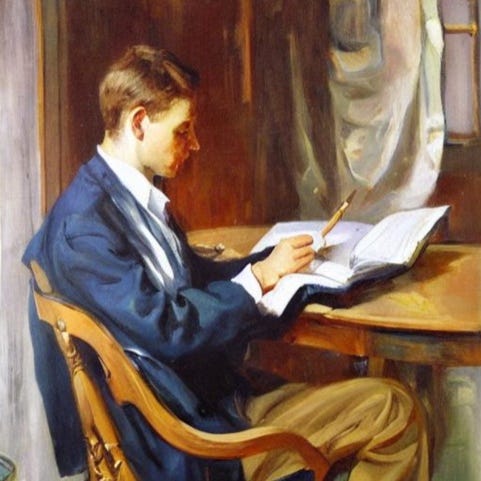This week we have another guest post! This time from psychotherapist with a topic that has always fascinated me: dreams. Enjoy!

When I was a child, I was very curious. I asked difficult and embarrassing questions. I liked to play mind games and interrogate others in surprising ways. I was a dreamer.
One of the questions I used to ask my father was: where do dreams hide when we wake up?
Today, more than 50 years later, I still ask myself that question. But now I have more theoretical knowledge, since I am a psychotherapist, and also more knowledge about people, about how mental and behavioral dynamics work.
So, today I ask a different question: Why, despite millions of years of human evolution, do we still dream? And why do animals dream?
The answer can only be analyzed from the point of view of survival, that is, we dream because in a certain way and for some reason dreams are important for human balance and survival.
At the root of dreams is our unconscious mind, which allows us to function in a coherent, balanced, and focused way. What would become of us if the brain gave the same attention to the thousands of stimuli it receives every minute? Life would be hellish chaos if a fly were as important to us as the concentration we apply to studying, or if we had to be conscious of the process of walking, talking, or thinking.
It is also these unconscious processes that allow us to manage our emotions automatically, select relevant information, think, eat, and write. It is an evolutionary marvel, equivalent to knowing where the infinity end, or where and when it began. The unconscious manages the emotions that we cannot process, those that were irrelevant or too strong to be transformed into thoughts or words and therefore accessed by the conscious mind.
This is where the relevance of dreams lies. We only dream when we are asleep, when we are unconscious, and our psychological defense mechanisms let down their guard, allowing us to develop our ego. Most of the time we don't remember our dreams, but notice how important they are from a social point of view. Many prophets based their prophecies on the dreams they had, just as some theological figures based their religion on dreams, or the ancient Greeks and Romans used dreams as oracles.
In a way, almost intuitively, humanity has always known that dreams had relevant content, that they were a gateway to a kind of parallel universe. Today, science has already demonstrated that dreams are gateways to the mind, revealing content that is not accessible consciously, and therefore, the raw material of dreams is the dynamic that is established between the conscious and unconscious mind.
That is why we dream with words, images, and thoughts, just the same way as we think. There are many theories surrounding the interpretation of dreams. Freud believed that dreaming was a way of accessing the repressed unconscious, that which cannot be felt because it is too painful or uncomfortable. Jung, on the other hand, believed that dreams were manifestations of the universal archetypes present in mythology. Whatever the starting point, dreams are certainly revealing of unconscious processes. But be careful, because dreams have no universal interpretation codes. Each dream belongs to the dreamer and cannot be seen literally.
For example, I often dreamed that I was a king who ruled over a vast territory. But that doesn't mean I want to be a king. It is up to me to look at that dream, analyze it in light of my life experiences, and understand what kind of desire or fear that dream is trying to convey to me.
Dreaming is not a creative act. It is a revealing act, a symbolic language that brings us closer to who we are and opens doors, allowing us to access our minds. In addition, dreams are important for organizing memory and eliminating irrelevant information. But these are the dreams we have while we sleep. Because metaphorically speaking, we can also daydream, and it was during one of these daydreams that I wrote this poem about dreams, which I now share with you.
The Silent Oracle
In dreams
you can be a God,
or the God
of gods,
travel to the edges of infinity,
or be a butterfly
defying winds
and flying over the oceans.
In dreams,
there is everything and nothing,
time dissolves
into myths, symbols and fantasies.
In dreams,
you can dream
that you are dreaming,
win over beautiful women,
be a king, or a beggar,
write poems
or dream of eternity
and meet the Creator.
A dream
Is the only place
where you can be all that you are,
a human being who dreams,
and you can even dream that you never fall,
because falling is hard
when the ability to dream is lost.
Dreams are a silent oracle
revealing ancestral secrets,
and only you hold the key to your dreams,
even though you were never
taught how to dream.
© Rolando Andrade, 2025
Thank you for taking the time to read this. If you enjoyed it, you can find out more in my newsletter Outside The Therapy Room.
Thank you to Rolando for sharing his thoughts with us! Make sure you check out his publication for more. ✨





Thank you Hege for invinting me to write this post, It was a pleasure, since I am an attentive and loyal follower of your blog.
Wednesday greetings, I love to sleep and dream, my dreams at 73 are quite amazing and prophetic, thank you Mr Andrade. I learned many things from reading your poem and analysis of dreams. Peace, love and poetry, Geraldine